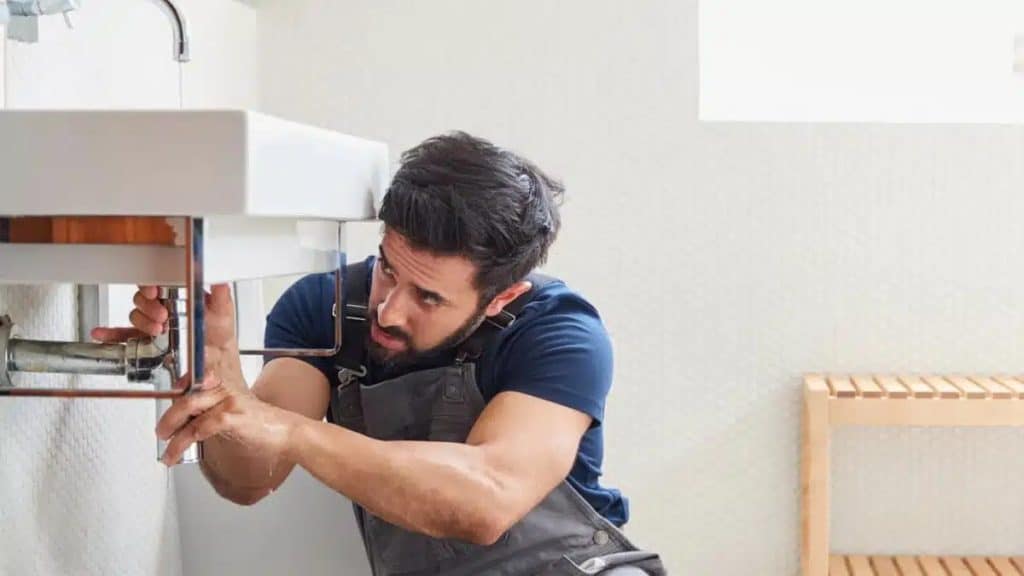Plumbing emergencies can cause significant stress, financial strain, and property damage. Fortunately, many of these emergencies can be avoided through regular maintenance and a proactive approach to your plumbing system. This comprehensive homeowner’s maintenance checklist will help you prevent costly plumbing disasters and keep your home’s plumbing system in top condition.
Why Preventative Plumbing Maintenance Matters
Regular maintenance not only saves you money on costly repairs but also ensures your home’s plumbing operates efficiently. Here are some key benefits of preventative plumbing care:
- Minimizes Risk of Emergencies: Routine checks can identify and fix minor issues before they escalate into emergencies.
- Extends Lifespan of Fixtures: Proper maintenance keeps pipes, faucets, and water heaters working longer.
- Reduces Water Bills: Addressing leaks and inefficiencies can save you money on utility bills.
- Protects Your Home: Preventing water damage helps maintain your property’s structural integrity and value.
Monthly Plumbing Maintenance Checklist
1. Inspect for Leaks
- Check faucets, under sinks, and around toilets for leaks or drips.
- Inspect visible pipes in basements, crawl spaces, or utility rooms.
- Tip: Fixing even a small leak can prevent water waste and damage.
2. Test Water Pressure
- Use a water pressure gauge to ensure your home’s water pressure is between 40-60 PSI.
- High water pressure can damage pipes, faucets, and appliances over time.
3. Run Drains Regularly
- Run water through all sinks, tubs, and showers to ensure proper drainage.
- Look for slow drains, which can signal early blockages.
- Solution: Use a natural drain cleaner (e.g., baking soda and vinegar) to clear minor clogs.
4. Check Toilet Functionality
- Test the flush mechanism to ensure it operates properly.
- Look for water running continuously in the tank or bowl.
- Tip: Add food coloring to the tank—if the color seeps into the bowl, you have a leak.
Seasonal Plumbing Maintenance Checklist
Spring Maintenance
- Inspect Outdoor Faucets and Hoses: Look for leaks or damage caused by freezing temperatures.
- Clear Gutters and Downspouts: Remove debris to prevent water backups during spring rains.
- Check Sump Pump: Ensure the sump pump is working properly to prevent basement flooding.
Summer Maintenance
- Inspect Washing Machine Hoses: Look for cracks, bulges, or leaks and replace if needed.
- Monitor Water Pressure: Increased summer water usage can strain your plumbing system.
- Check for Tree Roots: Tree roots can invade underground pipes, leading to blockages.
Fall Maintenance
- Insulate Exposed Pipes: Prepare for winter by insulating pipes in unheated areas, such as basements and garages.
- Drain and Shut Off Outdoor Water Lines: Prevent frozen pipes by disconnecting hoses and shutting off exterior water valves.
- Test the Water Heater: Ensure your water heater is functioning properly before winter.
Winter Maintenance
- Protect Pipes from Freezing: Keep your home’s temperature above 55°F and allow faucets to drip during extreme cold.
- Check Water Heater Performance: Increased demand for hot water during winter can strain older units.
- Seal Gaps and Cracks: Prevent cold air from reaching pipes by sealing openings in walls or foundations.
Annual Plumbing Maintenance Tasks
1. Schedule a Professional Inspection
Hire a licensed plumber for an annual inspection to identify potential issues with pipes, drains, water heaters, and other components.
2. Flush Your Water Heater
- Over time, sediment buildup can reduce the efficiency of your water heater.
- Drain and flush the tank to remove sediment and improve performance.
3. Inspect Sewer Lines
- Tree roots, grease, and debris can clog sewer lines over time.
- Consider a professional camera inspection to check for blockages or damage.
4. Test Your Sump Pump
- Pour a bucket of water into the sump pit to ensure the pump activates and removes the water efficiently.
- Replace batteries in backup sump pump systems.
5. Check Water Filtration Systems
Replace filters in water purification systems to maintain water quality.
Pro Tips for Avoiding Plumbing Disasters
- Know the Location of Your Shutoff Valves
- Familiarize yourself with the location of your main water shutoff valve and individual fixture shutoffs.
- In an emergency, shutting off the water can prevent significant damage.
- Avoid Pouring Grease Down the Drain
- Grease solidifies in pipes, leading to blockages.
- Dispose of grease in a separate container and throw it away.
- Use Drain Screens
- Install screens over drains in sinks, showers, and tubs to catch debris and prevent clogs.
- Be Mindful of What You Flush
- Only flush toilet paper and human waste.
- Avoid flushing wipes, paper towels, and other non-biodegradable materials.
- Address Minor Issues Quickly
- Don’t ignore dripping faucets, slow drains, or running toilets.
- Small problems can escalate into major emergencies if left untreated.
How Precision Emergency Plumber Denver Can Help
At Precision Emergency Plumber Denver, we specialize in helping homeowners prevent and manage plumbing emergencies. From annual inspections to 24/7 emergency repairs, our team of licensed professionals is here to keep your plumbing system running smoothly.
Our Services Include:
- Comprehensive plumbing inspections.
- Water heater maintenance and repairs.
- Drain and sewer line cleaning.
- Leak detection and pipe repairs.
- 24/7 emergency plumbing services.
Conclusion
Preventing plumbing emergencies starts with regular maintenance and a proactive approach to your home’s plumbing system. By following this checklist, you can catch minor issues early, avoid costly repairs, and protect your property from water damage.
Remember: For professional plumbing maintenance and emergency repairs, trust Precision Emergency Plumber Denver to provide reliable, efficient, and expert solutions for your home’s plumbing needs.
